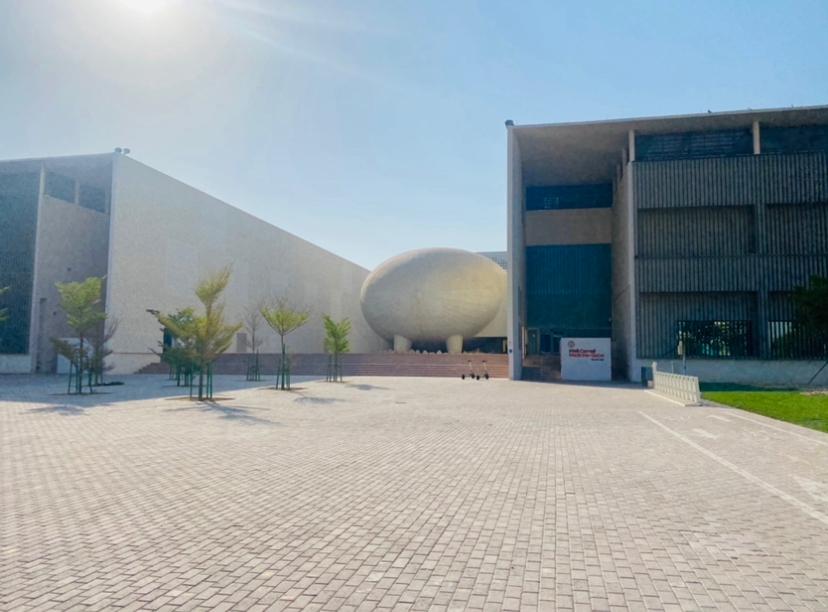Having been in a Foundation year at WCM-Q, I can confidently say that it was one of the best years at my time in college and there were many things that took me by surprise when I was in this program that I wish someone told me about beforehand. My expectations for the university foundation year as a high school graduate were studying or revisiting the sciences related to medicine along with studying English and some maths. I was a bit down as I had to study an extra year and medicine is a long enough journey. However, little did I know that studying Foundation at WCM-Q wasn’t going to slow me down but actually give me a solid headstart for the 6-year Medical Program. How? Well, read on and you’ll find out. Here are some of the aspects of the Foundation Program at WCM-Q that I wish someone told me about:
- Human Biology: Studying the human biology course has greatly helped us in familiarising ourselves with the human body. What’s great about this course is that instead of memorizing each body system (e.g. circulatory system, digestive system) separately and on a general level as we do at high school, we concentrate more on understanding the systems and their development along with how it is linked with the other systems – it really gives us a clear idea of the big picture and gives us a solid foundation of the human anatomy. Another great thing about this course was the chance to do dissection projects which significantly helps us to learn the content while also developing our dexterity and hand mobility skills which is important when becoming doctors. Doing this course gave me a solid foundation and familiarity that was greatly beneficial during Premed-2.
- Time management: The Foundation Program gives us a glimpse of what is expected in the Medical Program. It really helped me understand the atmosphere and standards of being a college student. The jump from high school to college is quite big and opened my eyes to the amount and intensity of work and deadlines expected. You also have to do a lot of independent studying and researching. This challenging atmosphere is the opportunity to learn how to adapt and refine my time management skills more effectively to adapt to and organize my life as a student more efficiently so that the pressure and work can be managed and under control. This may sound stressful to you but if you put in the effort to organize your time by trying out different techniques early on the semester and do not get behind on work, then you can rest be assured that you’ll have a great time (and yes you will have time for your social and personal life; not having a life studying medicine is a complete lie and myth!!)
- Delving on the other side of medicine: One of my great parts about the Foundation Program was developing a better understanding of the medical field and the role of a physician. As part of the English course, we would engage in a lively discussion of different articles that help build our understanding of the medical profession and the values and qualities of becoming a physician. As Foundation students, having those discussions early on in our university career was truly beneficial as they exposed us to the other side of medicine, not the science of medicine only but the art of it – what it means to be a physician. It made you feel like a proper medical student and helps you get started on constructing professional identities as future physicians
- Clinical Skills and Simulation Lab Experience: As a Foundation student, you get the great opportunity to experience what it’s like to be a physician in a clinical setting. This includes one-on-one interviews with standardized patients where you can get an idea of what it is like to encounter different types of patients and assess the para verbal languages during these encounters as well as having discussions about the ethics and values of being a physician. Experiencing this early on in Foundation was really valuable and beneficial when we encounter this again in Med-1.
- Pre-med Courses: Some of the subjects that you study in Foundation are actually with the Premed-1 students as well, which include biostatistics, calculus, and general chemistry 1. During the summer after foundation, there is an opportunity to take summer courses from Cornell University in Ithaca that is completely optional. A popular subject that foundation students tend to take is General Chemistry 2 (usually taken in Pre Med-1). By taking it in the summer, you’d have one less subject to study for in the fall semester of Pre Med-1! However, this is completely optional and you don’t have to take any courses in the summer.
Overall, The Foundation Program is a great, challenging, and healthy environment that allows the students to develop their skills, build foundational knowledge and tools to tackle the Medical Program. It not only helps the student grow but also gives a clear pathway of what it requires to be a physician along with having a better understanding of the depth of the medical field as both a scientific and humanitarian career path.
Contribution by Anonymous
